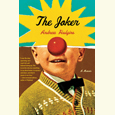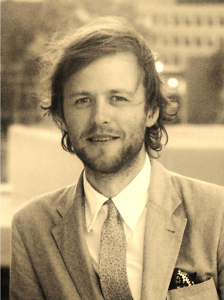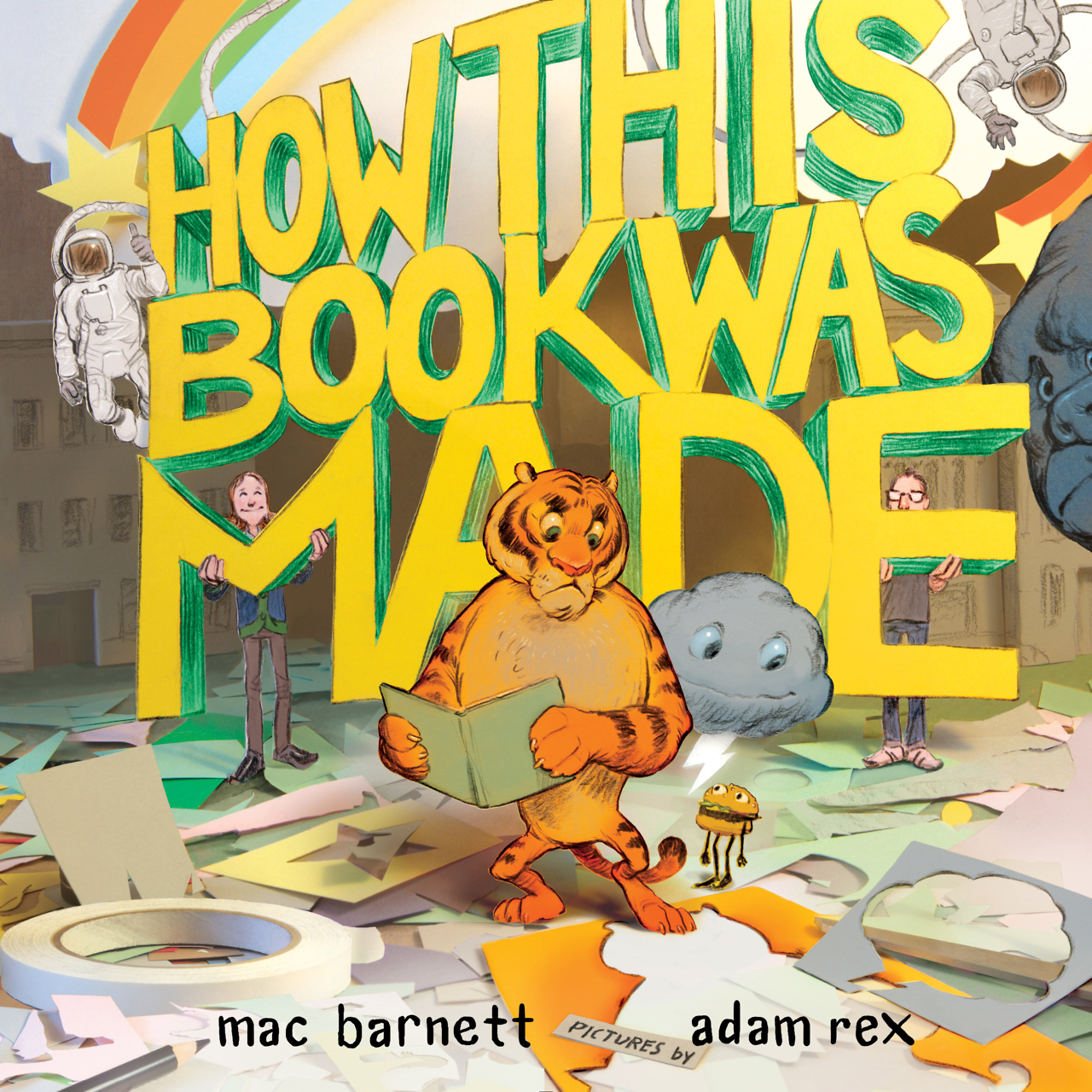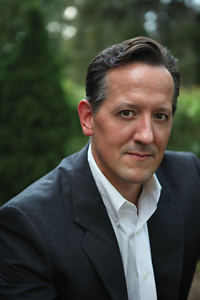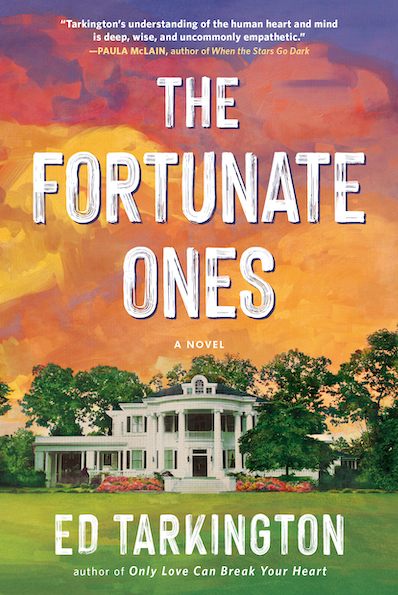JFK’s Legacy
Caroline Kennedy talks with Chapter 16 about the historical value of newly published tapes from her father’s White House
Fifty years ago this month, the Soviet Union’s attempt to station missiles in Cuba that were capable of attacking the United States set off the most nerve-wracking two weeks of the Cold War. Six months later, sustained civil-rights demonstrations in Birmingham, Alabama, gripped the world’s attention. Not long after that, a coup against the South Vietnamese government threatened to drag the U.S. into a civil war in Asia. These crises have been well-covered by historians, but Listening In: The Secret White House Recordings of John F. Kennedy, a new collection of President John F. Kennedy’s recordings of his private conversations, offers a fascinating glimpse into how the decisions in these critical situations were made. Caroline Kennedy, co-author of the book and daughter of the late president, recently spoke by phone with Chapter 16 prior to her appearance on Oct. 9 at the Nashville Public Library.
Chapter 16: When did you first find out your father had recorded many of these meetings and conversations?
Caroline Kennedy: I don’t remember the “big moment.” I think their existence became publically known in the 1970s—right around the Nixon Watergate time—so I guess it was around then. I was surprised then, but that was a long time ago now.
Chapter 16: Do you remember which conversation you listened to first?
Kennedy: Not specifically. They were all at the Kennedy library, and they were declassified and opened over time, and so there were batches of them that were released every couple of years after the archivists had processed them. I do remember being interested when the Cuban Missile Crisis batches were released, and there was always something in each batch that was really fascinating that I hadn’t been aware of, including many of the selections in this book. And this book has things that I had never heard before as well.
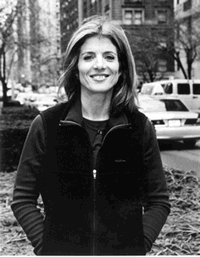 Chapter 16: Which had you already been aware of, and which were new to you?
Chapter 16: Which had you already been aware of, and which were new to you?
Kennedy: I was aware of the conversations about the more important things—space, civil rights, the Cuban Missile Crisis—because the fact that all these meetings and conversations were recorded is an incredible document, and people have drawn on them for books and conferences and things, and so I was definitely aware of that. But the ones like the dinner party—and the dictations, and some of the phone calls—I had never heard of before, whether they were to the former presidents or to Mayor Daley or to all those major figures at the time. And I had never read the [transcripts of] the whole civil-rights meeting.
A lot of these tapes are available online in our digital archives that we launched to commemorate the fiftieth anniversary last January, but I think what’s different and interesting and unusual about this book is that it really makes them accessible. So it’s almost as if they’re being published for the very first time.
Chapter 16: So this book will reach people who otherwise might not be aware of their significance?
Kennedy: Yes. It’s hard to search the digital archive and find the five minutes that are really interesting in a two-hour meeting. And a lot of times the quality varies, so you have to either know what you’re looking for or hit upon something. There are keys and guides, but until last year you had to go to the Kennedy library to look at them, and the library doesn’t edit [the conversations]. And so this is really a way of hopefully getting people interested in history, interested in this period, interested in the qualities of a president, and look at how these decisions are made. So this is very relevant to today, and I think this book and CD will make it accessible, and hopefully people will go on to either listen or read them and be interested in learning more about the period.
Chapter 16: What would you say these tapes help us understand better about the presidency during the Cold War, specifically? What elements of it can we get a better handle on by listening to these conversations?
Kennedy: Well, I think you get a renewed appreciation for how scary the Cold War was. So much time has passed, we look back on it and it doesn’t seem [possible] that we really thought that we were going to have a nuclear war with the Russians, but you can see in these tapes that people were legitimately scared—and the military was advocating for it! So I think it shows you how important it is to have the right kind of leadership and judgment. You’re really back in time and in a moment where the world is changing dramatically, and so you get a sense of the range of issues that come before a president and the complexity of the problems. The world was becoming much more international; it was becoming more media-driven. I think that is very interesting for people to see how we got where we are today.
Chapter 16: If you were recommending any one of these conversations to President Obama, would you pick one from the Cuban Missile Crisis, or would there be another one you would suggest?
Kennedy: I think the Cuban Missile Crisis is probably the most interesting and probably would sound really familiar to him, with everybody having different points of view. Right now, we’re pretty busy criticizing everyone for everything, [but] when you look at this, you think, “Well, look at these options, they all look terrible—how are people figuring their way through this?” And it happened to be a great success and led to the Test Ban Treaty, which was the beginning of detente. It gives you an appreciation for how even things that look bad at the time can turn into opportunities.
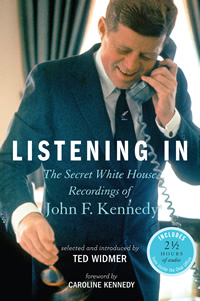 Chapter 16: Many of the tapes are meetings and interactions with political figures of the time. We hear a lot in the news today that the culture of D.C. has really changed. Do you think from listening to these tapes, and from your own experience in the years since then, that there has been a shift in the way that political leaders interact with each other?
Chapter 16: Many of the tapes are meetings and interactions with political figures of the time. We hear a lot in the news today that the culture of D.C. has really changed. Do you think from listening to these tapes, and from your own experience in the years since then, that there has been a shift in the way that political leaders interact with each other?
Kennedy: I think in the ‘60s it was much more built on personal relationships. I know that was true for my parents: my father had served in the House and the Senate, and people tended to stay for a long time, and they tended to live there and socialize together, so you hear that they really had relationships across the aisle that were strong. People like my uncle [Senator Edward M. Kennedy] and my mother used to say that was the biggest change: now everybody leaves on the weekend to go home to fundraise. But I think what you see [in these tapes] is that all these people knew each other and were able to work constructively together. So that’s a nice thing that hopefully we will see more of in the future.
Chapter 16: Among the Lyndon Johnson tapes, there’s a very popular clip of President Johnson ordering pants from his tailor: a very ordinary, everyday thing, but he’s doing it from the Oval Office. Are there conversations of your father doing something similar?
Kennedy: I haven’t listened to all 265 hours, so there probably are, but we try to give a sense of that by including some of the phone calls that are more informal, like my father talking to the hockey team, or the ones when he’s talking to my Uncle Teddy, or talking to my brother and me coming out of the room just as a serious meeting is beginning. They’re more lighthearted.
Chapter 16: Was there any conversation where you thought, “I cannot believe someone said that”?
Kennedy: Some of the military conversations during the Cuban Missile Crisis, how enthusiastic they were about full-out war—it’s incredible. I think the civil-rights conversations were the most emotionally moving to me, listening to Martin Luther King; listening to Bobby [Robert F. Kennedy, Attorney-General] laying out the options for Birmingham; listening to my father talking to the groups like the Americans for Democratic Action [a pro-civil rights group founded in the 1940s] and explaining what they were going to do. I think that sometimes, looking back, we get the sense that we’ve made so much progress: this gives you a renewed appreciation for how difficult that progress has been. And this makes me feel very proud of what they did.
Chapter 16: If you were speaking to a teenager who hadn’t heard any of these recordings, which ones would you recommend?
Kennedy: If you’re going beyond the obvious—which would be civil rights or the Cuban Missile Crisis—there are bits in the dinner-party conversation that are really interesting [because they reveal] what kind of person goes into politics and sees politics as a way of solving problems and what kind of person succeeds at that. And the times might change, and they may call for a different kind of person. What qualities do we want in a leader? These kinds of topics I think kids would be interested in. These conversations make you think about that, especially if you would also use them to talk about current events, and different elected officials at different levels, and what qualities they have and who’s courageous, and what kind of leadership we need.
The idea here is to inspire the next generation, as my father says [in one of the tapes], to give at least part of their life to public service. I think reading this book gives you a sense of how much he loved it and how rewarding it was for him, so hopefully that will inspire the younger people to want to do the same.
Caroline Kennedy, co-author of Listening In: The Secret White House Recordings of John F. Kennedy and daughter of President John F. Kennedy, will appear at 1 p.m. on October 9 at the Nashville Public Library as part of the Salon@615 series. She will also appear on October 10 at 6 p.m. at The Booksellers at Laurelwood in Memphis. Both events are signings only.

